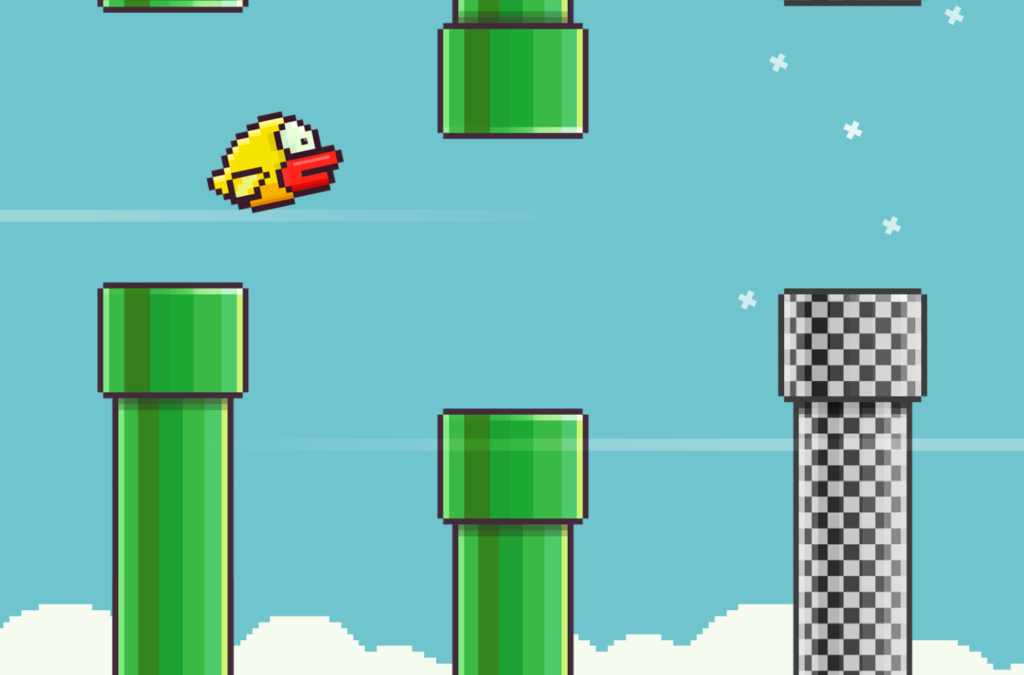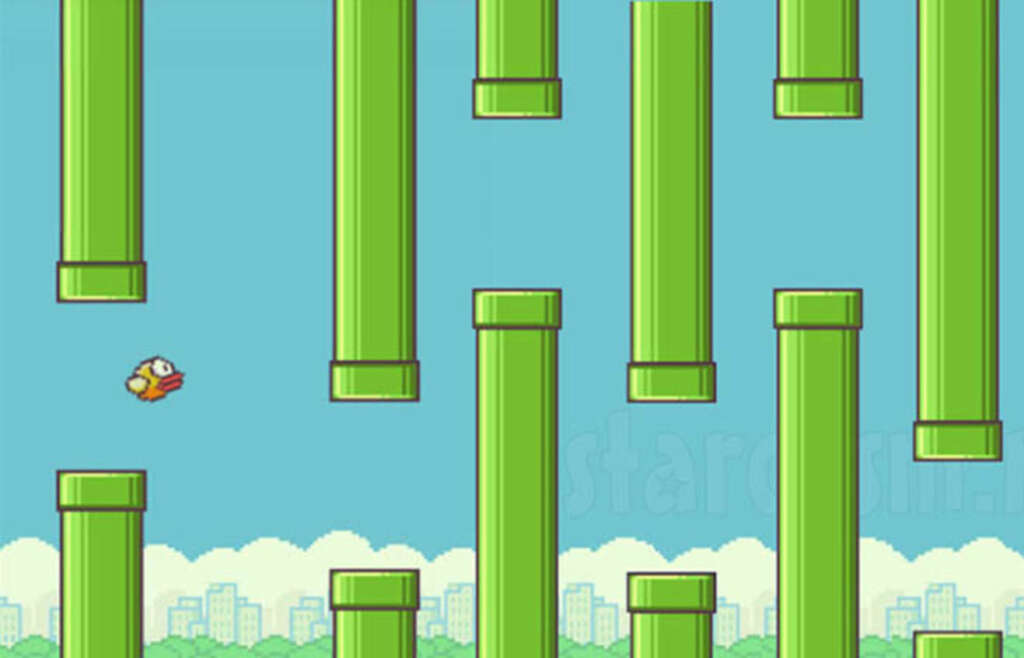Flappy Bird got banned despite becoming the most downloaded mobile game of 2014. This simple yet maddening game took the world by storm. The game shot up from position 892 in the family game category to become the number one free app on Apple’s App Store in just a few months.
The game’s success brought its creator, Vietnamese developer Dong Nguyen, about $50,000 daily in ad revenue. The game racked up 90 million downloads worldwide, but Nguyen shocked everyone by pulling it from all platforms. Let’s dive into what really happened to Flappy Bird and find out why it disappeared. We’ll look at everything from the game’s modest start to its viral success and mysterious removal when it was at its peak.

Table of Contents
The Birth of Flappy Bird
A simple mobile game that later became the center of controversy had modest beginnings in Vietnam. The viral sensation came from a passionate programmer who had a clear vision about keeping games simple.
Who created Flappy Bird and why
Dong Nguyen, a Vietnamese video game artist and programmer, created Flappy Bird under his game development company .Gears. He grew up in Vạn Phúc, a village near Hanoi, where he found his passion for video games while playing Super Mario Bros. as a child. This early exposure to gaming lit a spark in him, and he started coding his own games at 16.
During his programming studies at a local university, Nguyen got an internship at Punch Entertainment, one of Vietnam’s few video game companies. This chance helped grow his passion for game development and gave him valuable industry experience.
Popular mobile games like Angry Birds seemed too complex for casual players to Nguyen. He had a simple goal – to build a game that people who are “always on the move” could enjoy. He wanted something anyone could play anywhere without complex rules.
How the game was developed in just a few days
The whole development process took Nguyen just 2-3 days from start to finish. This quick turnaround showed his coding skills and the game’s intended simplicity. The bird character, Faby, wasn’t new – Nguyen had designed it in 2012 for a different game that never launched.
Table tennis gave Nguyen an unexpected inspiration. He based the main idea on keeping a ping pong ball bouncing against a paddle as long as possible. This became the tapping mechanic players used to control the bird’s height.
Nguyen’s first version was too easy and boring in testing. He made the game much harder – a change that made it both unique and addictive.
The game started as “Flap Flap” until Nguyen saw another app with the same name, so he switched to “Flappy Bird”. Players had to:
- Tap the screen to make the bird fly upward
- Release to let it drop downward
- Guide it through gaps in green pipes without crashes
Initial release and early obscurity
Flappy Bird made its quiet debut on May 24, 2013, built for iPhone 5. The game ranked 892nd among family games when it first hit Apple’s App Store. Three days later, it dropped off the charts completely.
The game stayed unknown and unloved for five months – a clear commercial failure. But Nguyen kept working, updating it for iOS 7 in September 2013 and fixing bugs in late October.
Things started changing in November 2013. Someone tweeted the first message about the game: “Fuck Flappy Bird”. This captured what would become the game’s odd appeal – people both hated and couldn’t stop playing it. More players shared their love-hate relationship with its tough gameplay throughout November.
By December 2013’s end, Flappy Bird had climbed to No. 80 on the US App Store’s “Free Games” chart. Then something amazing happened – this once-ignored game took off. The tough gameplay that first pushed players away became its biggest draw, leading to a viral explosion that got many people asking: why did Flappy Bird get banned?
The Viral Explosion
Flappy Bird went through an amazing change after months of being unknown. The numbers tell the story — this simple mobile game shot up from nowhere to rule app stores worldwide in just weeks.
Swedish YouTube superstar PewDiePie sparked Flappy Bird’s success by featuring it in his early 2014 video. His influential video made downloads soar to new heights. The game climbed to the top spot in Apple App Store and Google Play Store charts across many countries right after PewDiePie’s coverage [30, 32].
Social media platforms turned into battlegrounds for Flappy Bird competition. Players shared their high scores on Twitter and Facebook and challenged their friends. This created a free viral marketing machine for the developer. The App Store’s official Twitter account jumped into the action with “We got to 99. What’s your high score?” This tweet pushed the game’s popularity even higher.
The game’s viral nature created a powerful loop. Players posted about their frustrating experiences, which led to media coverage and more social buzz. The first tweet about Flappy Bird in November 2013 captured its future appeal perfectly: “Fuck Flappy Bird”.
The role of simplicity and frustration in its appeal
Flappy Bird’s simple design masked its clever mechanics. The game’s genius lay in one small detail — barriers were just slightly wider than your flap’s half-width. This forced players to make quick decisions about tapping while navigating these barriers.
The game hooked players for several reasons:
- Simple yet challenging mechanics made players want “just one more try”
- Players blamed themselves, not the game, when they failed
- No complex features meant players could focus on mastering one input
- Quick play sessions made multiple attempts feel manageable
The game’s retro look with Mario-style pipes struck a nostalgic chord with many players. Random point rewards kept players engaged through proven psychology.
Revenue from in-game ads
Flappy Bird’s financial success matched its popularity. The game made about $50,000 daily from ads at its peak. These earnings came from roughly 50 million downloads by January 2014, growing to 90 million worldwide.
The simple app earned around $18 million yearly without spending money on marketing. Creator Dong Nguyen said he “didn’t use any promotion methods” and credited luck for his success.
The game kept making money even after removal announcements. Industry experts noted that “Anyone who has the app on their phone will continue to generate revenue and push ad impressions”. More addicted players meant more ad views, creating a profitable cycle that lasted beyond the game’s official availability.
Flappy Bird’s explosive growth showed how word-of-mouth and social sharing could take a simple game to amazing heights of popularity and profit. This set up the controversy that made many wonder: why did Flappy Bird get banned?
Why Did Flappy Bird Get Banned?
Flappy Bird’s meteoric success came to an abrupt end when it disappeared from app stores worldwide. Millions of players couldn’t understand why their favorite game vanished. Many theories circulated about the game’s ban, but the truth turned out to be more nuanced.
Dong Nguyen’s tweet and public statement
The gaming world stood still on February 8th, 2014. Dong Nguyen dropped a bombshell on Twitter: “I am sorry ‘Flappy Bird’ users, 22 hours from now, I will take ‘Flappy Bird’ down. I cannot take this anymore.” This message followed his earlier tweet where he shared, “I can call ‘Flappy Bird’ is a success of mine. But it also ruins my simple life. So now I hate it.”
Nguyen made it clear his choice had nothing to do with legal issues. “It is not anything related to legal issues. I just cannot keep it anymore.” He stood firm against selling the game and stated: “I also don’t sell ‘Flappy Bird’, please don’t ask.”

Mental health and media pressure
The sudden fame brought overwhelming pressure that led to Nguyen’s decision. The quiet developer found himself thrust into an unwanted spotlight. Local and international media tracked his every move, which became a vital factor in his choice to pull the game.
The Vietnamese programmer, nearing 40, wanted a peaceful life to focus on coding. Reports showed he sought shelter in his parents’ house because they “worried about my well-being.” Media attention disrupted his life so much that he lost sleep and couldn’t step outside.
One report captured his struggle perfectly: “He went from a simple private life into this global tech celebrity fame that made him uncomfortable from the paparazzi and news outlets invading his privacy.” The introverted developer couldn’t handle this dramatic shift in lifestyle.
Guilt over the game’s addictive nature
The game’s impact on players weighed heavily on Nguyen’s conscience. He told Forbes: “Flappy Bird was designed to play in a few minutes when you are relaxed. But it happened to become an addictive product. I think it has become a problem. To solve that problem, it’s best to take down Flappy Bird. It’s gone forever.”
Messages from affected users deepened his guilt. He kept some disturbing messages, including one from a mother who wrote “13 kids at my school broke their phones because of your game, and they still play it cause it’s addicting like crack.” Stories of workers losing jobs and parents neglecting children poured in.
What started as seemingly harmless feedback revealed a darker reality. “I realized they really hurt themselves,” Nguyen admitted. The moral burden of running a game that earned $50,000 daily pushed him to remove it rather than any outside pressure or legal issues.
Speculations and Theories Behind the Removal
People shared many theories about Flappy Bird’s sudden disappearance beyond Nguyen’s official explanation. These ranged from believable legal concerns to wild conspiracy theories.
Was it due to copyright issues with Nintendo?
Players quickly suspected Nintendo had forced the game’s removal because Flappy Bird’s pipes looked similar to those in Super Mario Bros. A Kotaku article highlighted these similarities and suggested possible copyright infringement. Legal copyright infringement cases need proof of both access and substantial similarity. Mario’s artwork was clearly accessible.
Nintendo officially denied taking any action against the game. Their spokesman Yasuhiro Minagawa told the Wall Street Journal, “While we usually do not comment on the rumors and speculations, we have already denied the speculation”. TIME magazine received similar confirmation from Nintendo representatives that they “did not contact the creator of [Flappy Bird]” and “seek its removal from the marketplace”.
Rumors of bot farms and app store manipulation
The game stayed unknown for months before suddenly topping the charts, which made industry experts question its rapid success. Carter Thomas at BlueCloud solutions spotted download and review patterns that looked like bot activity. Some believed Nguyen used bots to create fake downloads and reviews – a claim he strongly denied.
Critics also noted how Flappy Bird’s popularity surge happened right when Nguyen’s other game “Shuriken Block” climbed the charts without any cross-promotion. When The Daily Telegraph asked about these claims, Nguyen simply said he respected others’ opinions but wanted “to make my games in peace”.
Why did Flappy Bird get banned Reddit theories
Reddit became a hub for explanations ranging from sensible to bizarre. Some users thought Nguyen pulled the game because “he didn’t mean for it to be addicting”. The wildest theories claimed “he was part of a Chechen sleeper cell” or was “smuggling plutonium via flappy birds”.
More realistic Reddit theories suggested that after earning “multiple MILLION Dollar a day,” Nguyen faced death threats and removed the game because “he made enough money for the rest of his life and didn’t need the hassle”. Another credible explanation pointed to Nguyen’s life in Vietnam, “which is still a single-party communist state,” and how he might have felt uncomfortable with sudden global attention and wealth.
The Aftermath and Legacy
Flappy Bird’s sudden disappearance left a huge gap in the mobile gaming world. The effects of this decision still appeal to gamers today.
Rise of Flappy Bird clones
The moment Flappy Bird vanished from app stores, developers rushed to fill the void with hundreds of copycat games. The situation got out of hand – Apple’s App Store saw more than 60 new Flappy Bird copies every day. This flood of copycats forced Google and Apple to start blocking games that used “Flappy” in their titles.
Notable clones included:
- Fall Out Boy’s Fall Out Bird
- Sesame Street’s Flappy Bert
- The underwater-themed Splashy Fish
- The multiplayer experience Flappy MMO
A reviewer pointed out that these alternatives were “pretty bleak” compared to the original.
Phones with the game selling for thousands
The aftermath took an unexpected turn when people started selling phones with Flappy Bird on eBay at crazy prices. Someone bought an iPhone 5S with the app for $10,100. Other listings reached $90,200 and $99,900. An iPad Air with Flappy Bird installed got bids over $80,000.
eBay pulled these listings because they broke the rule about resetting phones to factory settings before selling.
Flappy Bird’s influence on mobile game design
Flappy Bird changed how developers thought about mobile games. The game showed that simple ideas could become hugely popular. This led to a wave of hyper-casual games that focused on basic mechanics and addictive gameplay.
Code.org saw this as a teaching opportunity and created lessons that let students build their own Flappy Bird clones. This showed how much the game disrupted the gaming culture.
The 2025 reboot and who owns it now
Dong Nguyen lost the Flappy Bird trademark because of abandonment claims. Gametech Holdings LLC grabbed these rights through court proceedings in 2024. They sold them to the Flappy Bird Foundation – a team of dedicated fans and industry veterans.
The foundation launched a web version in late 2024 and released the mobile version in 2025. The new version came with extra game modes, fresh character designs, and different ways to make money. Nguyen made it clear he had nothing to do with this comeback.
Summing all up
Flappy Bird’s story stands as one of gaming’s most fascinating paradoxes. A simple game created in just a few days fascinated millions worldwide, generated massive wealth, and disappeared at its peak. This piece uncovers the complete experience from its humble beginnings to its unexpected demise and rebirth.
Of course, Dong Nguyen’s most compelling decision was walking away from $50,000 daily revenue because he couldn’t handle his creation’s effects. His choice represents a rare case where principles won over profit in the tech world. Most success stories follow a different path, but Flappy Bird’s tale centers on a developer who couldn’t bear fame and saw his product’s addiction potential as morally wrong.
The game’s legacy continues to shape mobile gaming today, in spite of that. Flappy Bird created the blueprint for hyper-casual games with addictive one-tap mechanics that made players frustrated yet hooked. The original disappeared, but hundreds of clones tried to copy its success. Phones with the original app became valuable collectors’ items worth thousands.
The 2025 reboot under new ownership shows Flappy Bird’s lasting cultural effect. Players worldwide still remember the little pixel bird that once ruled our screens and conversations, even though Nguyen has no connection to this revival.
The question “Why did Flappy Bird get banned?” ended up having many layers. People spread theories about copyright issues and manipulation, but the truth feels more personal and meaningful. Success sometimes brings risks that creators never predicted or prepared for. Flappy Bird flew away, but its effect on gaming history stays firmly grounded.
Here are some FAQs on why did Flappy Bird get banned:
What happens at 999 Flappy Bird?
When players reach the elusive 999 score in Flappy Bird, the game simply crashes due to a programming limitation, which relates to why did flappy bird get banned discussions about its technical issues. This glitch became part of the game’s legend and contributed to why did flappy bird get banned death theories about the developer’s frustration. Many players discussing why did flappy bird get banned reddit threads mention this score cap as evidence of the game’s unfinished state.
Why did they delete the original Flappy Bird?
The developer removed Flappy Bird citing guilt over its addictive nature, which explains why did flappy bird get banned from app stores. Dong Nguyen stated the game was “too addictive” and causing problems, addressing why did flappy bird get banned death concerns about player obsession. On why did flappy bird get banned reddit forums, many speculate financial pressures and potential legal issues also played a role.
Did Nintendo sue Flappy Bird?
While Nintendo never officially sued, similarities to Mario games fueled speculation about why did flappy bird get banned legal reasons. The developer denied receiving legal threats, making why did flappy bird get banned death explanations more about personal ethics than lawsuits. Reddit discussions on why did flappy bird get banned reddit suggest Nintendo could have had grounds but chose not to pursue action.
Why did people get addicted to Flappy Bird?
The game’s simple yet punishing difficulty created a compulsive “one more try” mentality that helps explain why did flappy bird get banned concerns. Its instant restart feature and visible score counter fed addictive behaviors that the developer cited when explaining why did flappy bird get banned death of the game. Psychological factors discussed in why did flappy bird get banned reddit threads highlight its perfect frustration-reward balance.
How much money is a phone with Flappy Bird on it?
After the removal, phones with Flappy Bird installed became collector’s items sometimes selling for thousands, adding irony to why did flappy bird get banned. The scarcity created by why did flappy bird get banned death of the game drove up prices significantly on secondary markets. As why did flappy bird get banned reddit users noted, some listings reached absurd prices like $100,000, though actual sales were much lower.
What happens at the end of the dinosaur game?
Unlike Flappy Bird (whose removal sparked why did flappy bird get banned debates), Chrome’s dinosaur game simply resets after 17,000 points when the score counter glitches. This technical limitation differs from why did flappy bird get banned death of that game, as Google kept their offline game available. While both games have score limits, only Flappy Bird’s disappearance created why did flappy bird get banned reddit conspiracy theories.


